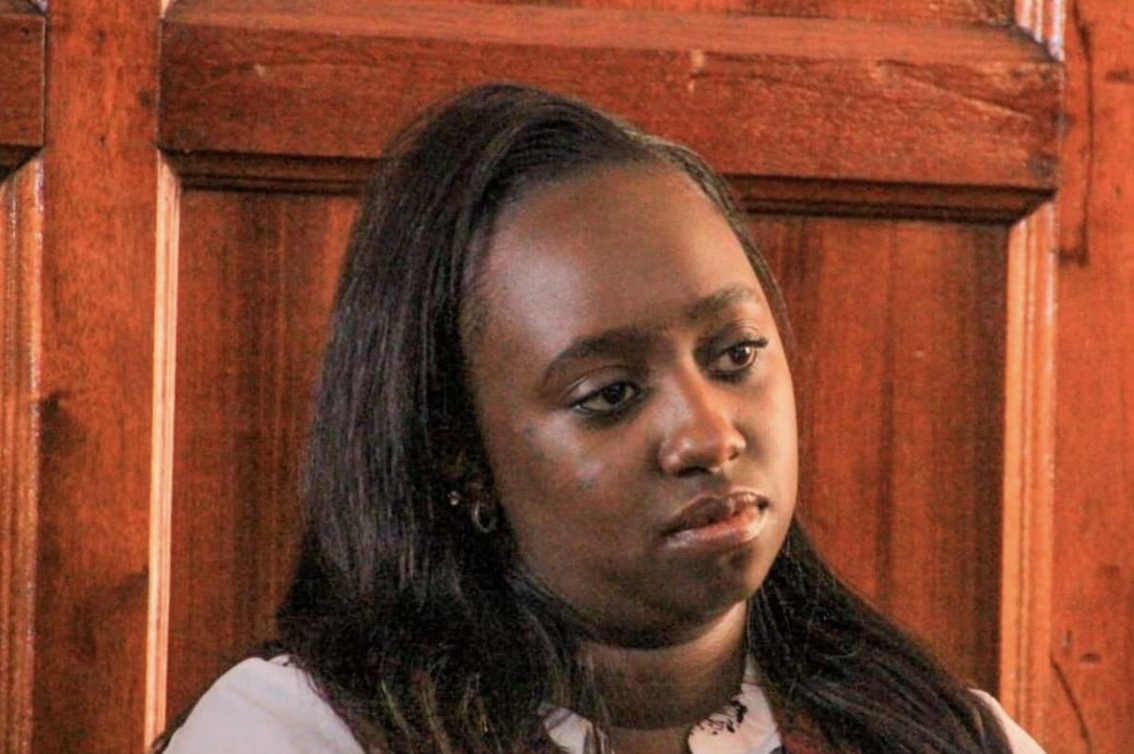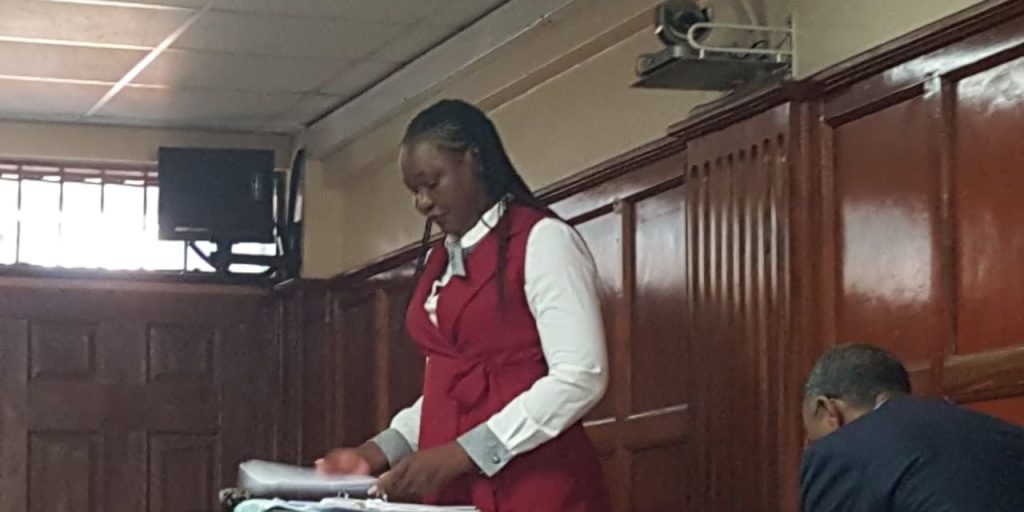News
Police Officer’s Testimony Clears Maxine Wahome, Says Murder Charge Was Driven by Family Pressure

A police officer has dramatically shifted the course of the murder trial against rally driver Maxine Wahome after testifying that she was pressured by the victim’s family into charging the motorsport star with the murder of her boyfriend Asad Khan.
Appearing before the Milimani High Court on Tuesday, Corporal Diana Angote told Justice Lilian Mutende that the charge against Wahome was filed prematurely and without crucial forensic evidence that later showed Khan died from an infection he contracted while admitted in hospital.
Her testimony concluded the prosecution’s case and raised serious questions about how investigators handled one of Kenya’s most publicised relationship tragedies.
Officer Admits Charge Was Filed Prematurely
Corporal Angote testified that Wahome was charged in March 2023 long before the Government Chemist submitted its analysis. She said the forensic report arrived six months later and revealed the presence of alcohol and the anesthetic drug ketamine in Khan’s system.

Senior Counsel Philip Murgor, representing Wahome, asked her whether she would have charged the rally driver with murder had she seen the analyst’s report beforehand. She responded that she would not have done so.
Angote admitted that the decision to charge Wahome was wrong and explained that three pathologists who conducted autopsies all concluded that Khan died from septicemia, a severe infection caused by a wound that was not treated promptly during his hospital stay.
Pressure from Victim’s Family
When questioned on why she charged Wahome without full evidence, Angote told the court that she was acting on information and pressure from the victim’s brother, Adil Khan.
Adil had reported to Kileleshwa Police Station that Wahome had assaulted his brother. Angote admitted that the report formed the basis of the arrest and initial detention of the rally driver even before the truth of the events was fully established.
“So you acted out of pressure from Adil to charge Maxine?” Murgor asked.
“Yes,” Angote replied.
Khan died in December 2022 while undergoing treatment. He was buried on December 19, 2022 at the Kariokor Muslim Cemetery.
Angote also acknowledged that she did not carry out any investigation into the possibility of medical negligence at the hospitals where Khan was treated but said it was not too late to investigate the facilities.
A Relationship Marked by Violence
The court has previously heard testimony describing a volatile relationship between Wahome and Khan. Wahome told the court in 2023 that Khan was abusive. Witnesses, including neighbour Chemutai Sogomo Chepkorir, recounted frequent violent altercations inside the couple’s Kileleshwa apartment.
Chemutai said she heard intense fighting, screams and insults on the morning of the incident. She testified that broken glass fell into her apartment from the couple’s flat and that she heard Wahome crying while Khan shouted angrily.

She said she called a security guard and later the residents’ association chairman as the violence escalated. According to her testimony, she later saw blood flowing down the stairwell from Khan’s house before neighbours intervened and rushed him to hospital.
Chemutai also stated that Khan’s previous six relationships had ended because of his violent behaviour.
What the Forensic Evidence Shows
A government analyst, Dr M. Muthini, testified that he detected ketamine in Khan’s system. He explained that the drug, combined with whisky, could cause hallucinations, impaired judgment and violent outbursts.
Khan’s brother Adil also testified that he consumed a full bottle of Jameson and other hard drinks that night. According to the forensic testimony, Khan may have injured himself when he kicked a steel door panel, causing a deep cut on his ankle which later became infected.
Dr Muthini told the court that the untreated wound led to severe blood loss and ultimately the bacterial infection that caused his death.
Case Takes a New Direction
The officer’s admission that she acted under pressure and filed charges before receiving critical evidence has reshaped the murder trial. What initially appeared to be a straightforward case has turned into a complex mix of domestic violence, intoxication, drug-related behaviour and possible gaps in medical care.
Legal observers say Angote’s testimony could significantly weaken the prosecution’s case and strengthen Wahome’s claim that she was wrongly accused.
The hearing will continue on November 26, 2025, when the court is expected to determine the next steps in the trial.
Kenya Insights allows guest blogging, if you want to be published on Kenya’s most authoritative and accurate blog, have an expose, news TIPS, story angles, human interest stories, drop us an email on [email protected] or via Telegram
-

 Grapevine1 week ago
Grapevine1 week agoAlleged Male Lover Claims His Life Is in Danger, Leaks Screenshots and Private Videos Linking SportPesa CEO Ronald Karauri
-

 Lifestyle2 weeks ago
Lifestyle2 weeks agoThe General’s Fall: From Barracks To Bankruptcy As Illness Ravages Karangi’s Memory And Empire
-

 Grapevine5 days ago
Grapevine5 days agoRussian Man’s Secret Sex Recordings Ignite Fury as Questions Mount Over Consent and Easy Pick-Ups in Nairobi
-

 Investigations2 weeks ago
Investigations2 weeks agoEpstein Files: Sultan bin Sulayem Bragged on His Closeness to President Uhuru Then His Firm DP World Controversially Won Port Construction in Kenya, Tanzania
-

 Investigations2 days ago
Investigations2 days agoMulti-Million Dollar Fraud: Three Kenyans Face US Extradition in Massive Cybercrime Conspiracy
-

 Investigations2 weeks ago
Investigations2 weeks agoEpstein’s Girlfriend Ghislaine Maxwell Frequently Visited Kenya As Files Reveal Local Secret Links With The Underage Sex Trafficking Ring
-

 News2 weeks ago
News2 weeks agoState Agency Exposes Five Top Names Linked To Poor Building Approvals In Nairobi, Recommends Dismissal After City Hall Probe
-

 Business1 week ago
Business1 week agoM-Gas Pursues Carbon Credit Billions as Koko Networks Wreckage Exposes Market’s Dark Underbelly



















